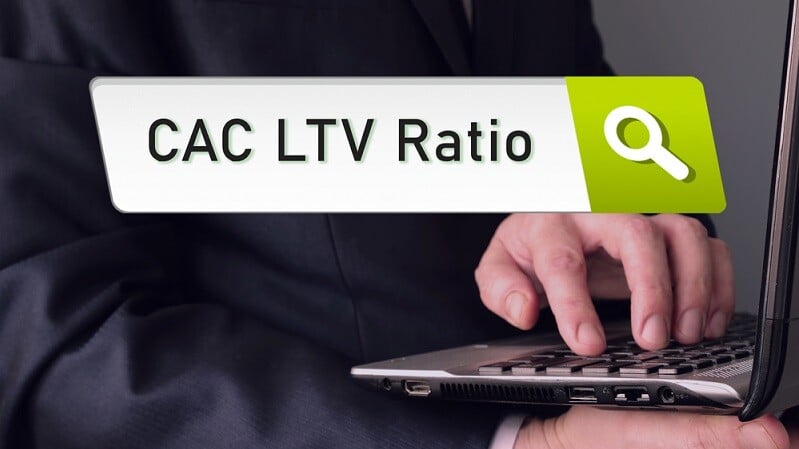This article was updated on March 21, 2022
Registering as a women-owned business comes with many advantages. If you are a female entrepreneur on your way to being the next successful business woman and you've never heard of the certification offered by the Small Business Administration (SBA) or the Women's Business Enterprise National Council (WBENC), keep reading.
In this guide, we'll cover the ins and outs of these certifications including how they were created, how you can register as a business owner, and why registering might be beneficial to your overall success.
Women-owned business certification
There are multiple programs to choose from when considering how to register as a certified women-owned business enterprise (WBE):
- Under the SBA's Women-Owned Small Business (WOSB) Federal Contract Program, businesses can qualify as either:
o WOSB - Women-owned Small Business
o EDWOSB - Economically Disadvantaged Women-Owned Small Business.
- WBENC is a national nonprofit which offers the Women's Business Enterprise (WBE) certification.
Differences between the WOSB/EDWOSB and WBE certification
There are many key things to note when deciding which of the women-owned business certifications to get. The most important is to whom the two certifications target.
Women-Owned Small Business (WSOB)
WOSB’s purpose is to ensure that women business owners have equal opportunity to federal contracting. It's important to note that due to this, the WOSB program limits certified organizations to specific North American Industry Classification System (NAICS) codes whereas the Women's Business Enterprise (WBE) certification usually does not.
Both the WOSB and EDWOSB are federal certifications, which directly correspond to bids for federal contracts. If qualified, these certifications can open doors to programs and contracts set aside specifically to help businesses that fall under this category.
Finally, for federal contracts, not only would you need the WOSB certification, but you may also need to register with the System for Award Management (SAM). For EDWOSB, there are additional financial requirements to meet regarding the disadvantaged business enterprise owner’s own assets for the certification application, but the trade-off is more contracting opportunities, which are set aside specifically for EDWOSB certification holders on top of the ones already offered for WOSB.
Women's Business Enterprise National Council (WBENC)
On the other hand, the WBENC certification is more common for the private sector. Typically, the WBE certificate is accepted by private companies and certain government agencies, whereas the WOSB certificate is required for federal programs. Though some government agencies will accept WBE, it’s best to check. The best way to decide which certifying agency and certification to use is also to check the website of each organization to see if one offers a particular benefit to your specific company, or if one has more networking opportunities to grow your business. Another good way is to ask any potential customers whether they require any particular certification.
To sum this up, while the SBA programs are financially focused on women-owned businesses, WBENC’s certification program is more about connecting businesses with corporate partners.
The benefits of registering as a women-owned small business
Registering as a women-owned small business can offer incredible opportunities to help your business thrive. While it may take a few extra steps to get your business registered as women-owned (we'll get to that later), the pay-off of having a this certificate can be exponential.
The perks of getting certified as a WOSB or EDWOSB include:
- Increased visibility - If you are a women-owned small business that works primarily with business-to-business transactions and third-party vendors, getting WOSB certification can increase your exposure and fortify your business's reputation in your industry.
- Potential financial benefits - The entire goal of this government program is to award women contracts in industries where they are typically underfunded and overlooked. While getting WOSB certification does not guarantee you'll win the most lucrative contracts, you will be in a better position to compete as a minority business enterprise since government agencies must set aside certain contracts to meet their 5% quota.
- Potential educational benefits - With your certification, you can apply for the SBA mentor-protege program. Through this program, you can learn from an experienced government contracting officer who will provide technical assistance and improve facets of your business like your marketing and accounting skills as well as business development and strategy training.
The perks of getting certified as a WBE include:
- Increased access to corporate partners - Once you're certified, you'll be placed in the WBENC database, which includes a list of Fortune 500 firms like AT&T, Dell, and IBM.
- Access to conferences, networking, and continuing education - WBENC has multiple regional and national events annually that allow owners to get up in front of a vast network of other successful entrepreneurs. Those with WBE certifications also have access to workshops, webinars, and newsletters.
- Marketing boost - Having a WBE certification is an incredibly versatile marketing tool-it shows customers you are not only a viable business, but you're also a viable women-owned business, which is an important distinction for many buyers. Once you’re certified, the WBENC may also feature you on their site.
Small Business Association's women-owned small business programs
The WOSB Program started 21 years as a women's procurement program to assist the government in meeting it's 5% women-owned small business contracting goal. Over the years, the program evolved to better meet the needs of the high number of program applicants.
How to qualify as a women-owned small business
To qualify as a WOSB, businesses must meet the following eligibility requirements:
- Women ownership - Be at least 51% female-owned and controlled by women who are U.S. citizens.
- Women management - Have women manage day-to-day operations and make long-term decisions.
- Be a small business - To qualify as a small business under the Small Business Administration guidelines, manufacturing companies will typically need to employ fewer than 500 employees and non-manufacturing businesses will need to have average annual receipts under $7.5 million.
There are exceptions, though. If you aren't sure about the status of your company, you can check the size of your business by using SBA's Size Standards Tool and typing in your six-digit North American Industry Classification System (NAICS) code.
To qualify as an EDWOSB, businesses must meet the following criteria:
- Meet all the above eligibility requirements for WOSB
- Be owned and controlled by one or more women, each with a net worth less than $750,000
- Be owned and controlled by one or more women, each with $350,000 or less in "adjusted gross income averaged over the previous three years"
- Be owned and controlled by one or more women, each with $6 million or less in personal assets
How to get certified as a WOSB or EDWOSB
If you meet the criteria to qualify as either a WOSB or EDWOSB, it's time to consider getting a women-owned business certification.
First things first – you'll need to apply in order to be recognized as a certified business. Businesses can apply for certification through the SBA or through a certified third-party certification process.
Approved third party organizations include:
- El Paso Hispanic Chamber of Commerce
- National Women Business Owners Corporation
- U.S. Women’s Chamber of Commerce
- Women’s Business Enterprise National Council
Reference this required documentation list before applying for your certification:
- Birth certificates, naturalization papers, or passports for each business owner
- Articles of organization/incorporation, partnership, or joint venture agreements, voting agreements, and any amendments to these documents
- Stock certificates and stock ledger
- Assumed/fictitious name certificate
- Three most recent personal tax returns per owner
- IRS Form 4506-T
Certified firms will then need to provide proof of your certification to the SBA and can start taking advantage of the WOSB Program.
Women's Business Enterprise National Council's Women-Owned Business Certification Program
The mission of the Women's Business Enterprise National Council (WBENC) is to help female entrepreneurs tap into an already extant support network.
In order to qualify for the Women's Business Enterprise (WBE) certification, businesses need to meet some of the same criteria as they would for the SBA programs. This criterion is as follows:
- The majority of the ownership is held by one or more women
- There is demonstrated proof of female management and control of business
- There is unrestricted female control of the business represented in both legal documents and day-to-day operations
- A woman holds the highest title in the company's legal document
- There is documented evidence of female contribution through capital or expertise
- The majority of women owners have U.S. citizenship or legal resident alien status
How to get a Women's Business Enterprise (WBE) certification
The process of certification requires uploading a variety of documents to WBENC's portal. A full list of documents can be located online. Some of this paperwork includes:
- A signed, sworn affidavit
- A WBENC user agreement
- History of business
- Professional and business licenses
- Resumes of all owners
WBENC suggests asking yourself the following questions before applying for certification – if you answer "yes" to all the questions below, it may be time to apply:
- Is your product/service targeted at corporations, retail, and/or government agencies?
- Does your business have the capacity to provide quality service/products on large contracts?
- Are you willing to share all the sensitive details and documents related to your business?
- Do you understand that WBE does not guarantee that you'll receive corporate, retail, or government contracts?
Tips to finding success as a women-owned small business
While a women-owned business certification can get you access to financial, educational, and marketing opportunities, you may still be wondering how you can achieve success on a daily and long-term basis.
Consider investing in the following practices to increase your company's output, no matter your industry:
#1 Market yourself
Women business owners like Charlene Hart of Balanced Hart have seen incredible growth in their market reach through Nextdoor, essentially expanding the power of word-of-mouth into the digital world.
By creating a Nextdoor Business Page, you can tap into the power of your neighborhood.
Nextdoor is the local hub that connects communities with small businesses just like yours. With your free, easy-to-create, customizable Business Page, you can engage with your neighbors and let them know what product or services you offer. You can also collect recommendations, and request feedback from your local customers.
Be sure to mention your newly minted certification on your Business Page to lend even more credibility to your enterprise.
#2 Provide top-notch customer service
Happy customers are repeat customers. Prioritizing customer service can help your business gain traction online, plus it makes you a more appealing partner to third-party vendors and fellow entrepreneurs.
According to a 2017 Microsoft report, 54% of survey respondents said they had higher expectations for customer service today than they had one year ago.
As the nation and the world still grapple with the effects of a global pandemic, positioning yourself as a strong, women-owned small business with stellar customer service will leave a positive impression on consumers for years to come.
#3 Capitalize on consistency
It sounds simple, but creating a consistent product or service can help launch you from a mediocre company to a successful enterprise.
Inc.com columnist Eric Holtzaw writes that there are five reasons why consistency is so critical to achieving and maintaining success:
- Consistency allows for you to measure your business's success
- Consistency creates accountability
- Consistency establishes your business reputation
- Consistency makes you relevant
- Consistency maintains your message
By becoming a certified women-owned small business either through the federal government's program or through the WBENC nonprofit, you're opening yourself and your business up to new and improved opportunities.
Capitalizing on this certification while also focusing on daily tasks-marketing, customer service, and consistency will have you on the path to long-term success and financial wellbeing in no time.
#4 Know your value
Pursuing your business goals as a female entrepreneur can be one of the bravest things you do. But despite obstacles you may face, never forget the value of the product and services you're offering. By showing you believe in your business model, you set the standard for consumers and investors alike to believe in you.
Haley Palmer, owner of real-estate firm WIN offers this advice:
"Women have the tendency to sell themselves short, assuming that speaking positively about their achievements is bragging. Stating what you're factually good at and the growth and success you've seen with your business isn't bragging when it's done appropriately. Be confident and comfortable disclosing your strengths and touting your success; don't hide from it - respect will follow."
Conclusion
Being a small business owner is a full-time (and then some) job. You work around the clock to pave the way for success-but you don't have to do it alone. By registering as a women-owned small business, you can tap into the experience, connections, and collective wisdom of thousands of women entrepreneurs who have been in your shoes.
Don't forget to lean on your local support network through Nextdoor. Countless women business owners have utilized Nextdoor's business features to help their companies thrive. Engage directly with customers, gain networking opportunities with other business owners, and become a living example of how hard work and business savvy can make all the difference. Claim your free Business Page and get started today.
--
Additional sources:
Small Business Administration. Women-Owned Small Business Federal Contracting Program. https://www.sba.gov/federal-contracting/contracting-assistance-programs/women-owned-small-business-federal-contracting-program
Small Business Administration. Power Point. https://business.defense.gov/Portals/57/WOSB%20SBTW18.pdf?ver=2018-05-01-183937-050
Small Business Administration. Basic Requirements. https://www.sba.gov/federal-contracting/contracting-guide/basic-requirements.
Small Business Administration. Size Standards Tool. https://www.sba.gov/size-standards
Small Business Administration. SBA Mentor Protege Program. https://www.sba.gov/federal-contracting/contracting-assistance-programs/sba-mentor-protege-program
United States Chamber of Commerce. How to Get Certified as a Woman-Owned Business. https://www.uschamber.com/co/start/strategy/get-certified-woman-owned-business
Women’s History Month. https://womenshistorymonth.gov/
National Women’s Business Council. What is Certification? https://www.nwbc.gov/content/what-certification/
Jetco Federal. The WOSB Program and 2019 Changes. https://jetcofederal.com/2019/09/the-wosb-program-history-and-2019-changes/#:~:text=The%20Women%2DOwned%20Small%20Business,to%20women%2Downed%20small%20businesses.
PR News Wire. SBA Issues New Regulations for Women-Owned Small Business Federal Contracting Program.https://www.prnewswire.com/news-releases/sba-issues-new-regulations-for-women-owned-small-business-federal-contracting-program-301056827.html
United States Census. North American Industry Classification System. https://www.census.gov/naics/
Fast Capital 360. Women-Owned Business Certification: What You Need to Know. https://www.fastcapital360.com/blog/women-business-certification/
WBENC. Certification. https://www.wbenc.org/certification/
WBENC. Documentation Required. https://www.wbenc.org/certification/documentation-required/
Microsoft. Report. http://info.microsoft.com/rs/157-GQE-382/images/EN-CNTNT-Report-DynService-2017-global-state-customer-service-en-au.pdf
Inc. Power of Consistency: 5 Rules. https://www.inc.com/eric-v-holtzclaw/consistency-power-success-rules.html
CNBC. A growing number of women are starting their own companies. These business owners share how they got it right. https://www.cnbc.com/2018/11/02/advice-for-entrepreneurs-womens-best-advice-for-running-a-business.html








